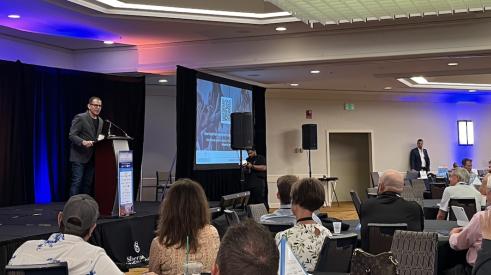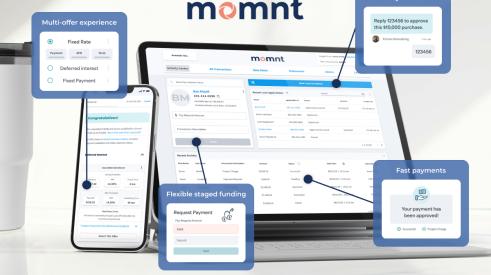About 11 years ago, Kevin Phillips, an estimator for an Illinois roofing company, took a day off to go fishing with his colleague Jonathan Schemerhorn, the company's production manager. That’s where he pitched Schemerhorn on the idea of the two of them quitting and starting up their own operation. They had almost zero capital, but they knew how to price and produce jobs.
The only problem, Schemerhorn told Phillips, was that both had signed noncompete agreements when they came to work. So, to avoid legal backlash, they opened their business, Full Service Roofing & Remodeling in Quincy, Ill., two hours away from the company they left. Today, Full Service flourishes.
The covenant not to compete, or CNC, is a legal mechanism better known as a noncompete clause. More and more business owners use CNCs, in effect, to prevent key employees from taking what they’ve learned at the company to join an already established adversary or start a competitor company.
“Some employers may require new employees to enter into non-competition agreements before beginning work, and such agreements usually take effect after the employer-employee relationship has ended,” notes legal website findlaw.com.
People sign noncompetes with the understanding that often it's a requirement to get the role. According to the Workplace Fairness Attorney Directory, an employer cannot require an employee to sign a noncompete, though “they may terminate, or choose not to hire you if you refuse to sign." Whether doing so is legal will depend on each case and varies from state to state.
The employee must generally receive something of value in exchange for signing the noncompete—known in legal jargon as a consideration. Asking a current employee to sign a noncompete without a valid consideration providing something in return could (and, in some states, will) get that noncompete ruled invalid or unenforceable, should the owner attempt to force the issue in court.
More Than One Way
CNCs aren't the only type of restrictive covenant company owners use to keep business information from leaking to competitors. Actually, it’s only one of three types that can come into play.
The trifecta, most often used in situations involving high-level managers and salespeople, includes the noncompete; the nondisclosure agreement, or NDA, which is “a promise that information conveyed will be maintained in secrecy;” and the non-solicitation agreement.
The non-solicitation agreement prevents an employee from soliciting the company's customers "for his or her own benefit, or for the benefit of a competitor, after leaving the company.” A non-solicitation agreement can also include require that the signee not poach other employees after he or she leaves the company. (For more on employee poaching, see April's feature, "Wouldn't Leave If You Paid Me.")
All three of these restrictive agreements can either stand alone or exist as a clause in an employment contract. Non-solicitation agreements are also sometimes included as part of a severance package.
Tit For Tat
The specifics of these agreements vary quite a bit, since “each state has its own unique laws and rules about whether, when, and to what extent a noncompete agreement is enforceable,” notes Heather Bussing. Their fate when tested in the courts has also varied. Most states regard a noncompete as good for one or two years, at most.
Use of noncompetes and similar restrictive covenants has increased substantially. “Noncompetes are normally reserved for executives or at tech firms, to keep people from bringing trade secrets to another company,” notes Lydia DePillis in The Washington Post. “Lately, though, they’ve been popping up in more and more low-wage sectors too, like maids and nail stylists, prompting a spate of lawsuits.”
Courts often frown when called on to enforce restrictive covenants as applied to anyone and everyone. It might make sense to a judge to prevent your sales manager from taking information to set up a business a mile away by using a database of customer contacts your marketing budget has paid for. But should your siding project manager be restricted from taking a job at a company in the same town, or starting his own company?
On that there is considerable judicial pushback, especially in states such as California. Opponents of noncompetes and other restrictive agreements, including the lawyers who argue against them in court, say that such covenants now serve not so much to protect a business as to intimidate people from leaving.
“By giving companies huge power to dictate where and for whom their employees can work next, noncompetes take a person’s greatest professional assets—years of hard work and earned skills—and turn them into a liability,” writes Conor Dougherty, citing a survey by economists showing that “about one in five employees was bound by a noncompete clause in 2014.”
The Socko Case
When disputes over noncompete agreements end up in courts, the agreements are often ruled invalid on the ground that employees gave the employer something but got nothing in return, i.e., there was no valid consideration. This frequently happens when an employee is asked to sign a noncompete after they’ve already joined a company.
For instance, in January 2012, David Socko resigned as a salesperson for Mid-Atlantic Systems, a basement waterproofing company in Pennsylvania, and took a job with its competitor, Pennsylvania Basement Waterproofing. Socko had signed a two-year CNC when hired by Mid-Atlantic in 2007, and another similar agreement when rejoining the company in 2009. In 2010, while still employed with Mid-Atlantic, he signed a third agreement that was more restrictive and superseded the prior agreements.
So, when he quit and took the new job at a competitor, lawyers for Mid-Atlantic acted to stop him. “A month into his new employment, Mid-Atlantic sent a copy of the most recent noncompete agreement to Mr. Socko’s new employer and threatened litigation," according to a case summary by the Rothman Gordon law firm. "Mr. Socko was terminated ten days later.”
Socko then sued Mid-Atlantic. The case headed to the Supreme Court of Pennsylvania, which ruled the most recent Mid-Atlantic noncompete unenforceable because Socko signed it after he took a job with the company and was not provided "new and valuable consideration" with the last agreement—a requirement of CNCs in Pennsylvania.
Critical Business Information
Is the purpose of restrictive agreements to intimidate employees into staying with a company, or to protect what might reasonably be described as trade secrets?
That reason has evolved, argues attorney Bruce L. Baldwin. “Historically, these covenants were legitimately used to provide employers with critical protections against the taking of important parts of their business by key employees," Baldwin writes. "More recently, however, the blanket and indiscriminate use of these covenants to bind all sorts of employees, from CEOs to entry-level sales representatives, has become an increasingly onerous and unreasonable limitation."
The reasoning behind restrictive covenants is to protect a business specifically by protecting information that’s confidential and unique. That could be your selling system, training manuals or videos, or lead generation systems and processes—if you can prove they’re trade secrets.
Wikipedia defines a trade secret as a “formula, practice, process, design, instrument, pattern, commercial method, or compilation of information not generally known or reasonably ascertainable by others" that a company can use to get ahead of competitors or customers: All the things, tangible or otherwise, that you don’t want someone taking with them to your competitors.
If you can prove that these are confidential and unique to your company, it's smart to put in place confidentiality agreements with those who have access to these trade secrets; even having salespeople sign non-solicitation agreements not to take your customers along for the ride when they leave is an option.
But what about employees who likely don't have access to that kind of confidential information? Phillips says for the first four years he operated Full Service Roofing & Remodeling, the company did not require new employees to sign a noncompete. Then, a salesperson and a project manager left the company to open up a roofing business in the same town, which is now “one of our largest competitors.”
So seven years ago the company began requiring new employees to sign noncompetes. “In hindsight,” he says, “we should’ve had a noncompete from day one.”
Add new comment
Related Stories
Selling Your Company to Your Team
From company valuation to terms of the transfer, here’s a look at how three different remodelers made the deal work
Re-Bath Expands its Reach with New Franchise
The company signs a deal with brothers who are first-time franchisees
Pro Remodeler’s 2024 Pinnacle Experience Reaches New Heights
The sold-out event covered leadership, lead gen, sales, and technology
Brian Gottlieb Receives Remodeling Mastery Award
Presented by industry icon, Mark Richardson, the award celebrated Gottlieb’s extraordinary impact on remodeling
What's Beyond the Hammer?
Working with Brian Gottlieb on the book Beyond the Hammer provided a masterclass on how to build an aligned team
5 Counterintuitive Strategies to Improve Your Business
Follow these strategies to inspire employees, instill trust, and beat the competition
Couple Act As Much More Than General Contractors
How LBR Partners uplifts and educates their Spanish-speaking trade partners
How to Correctly Hire for Business Growth
Refloor CEO Brian Elias shares exactly how his company hires the correct people for the correct seats
Power Home Remodeling Expands Financing Offshoot with $400M from Goldman Sachs
Industry-leading home improvement company Power plans to grow its fintech offshoot fivefold with new investment
· sponsored
Increase sales and grow your business with Momnt Contractor Financing
Give your clients simple, fast, and affordable payment options for the investments that matter most













